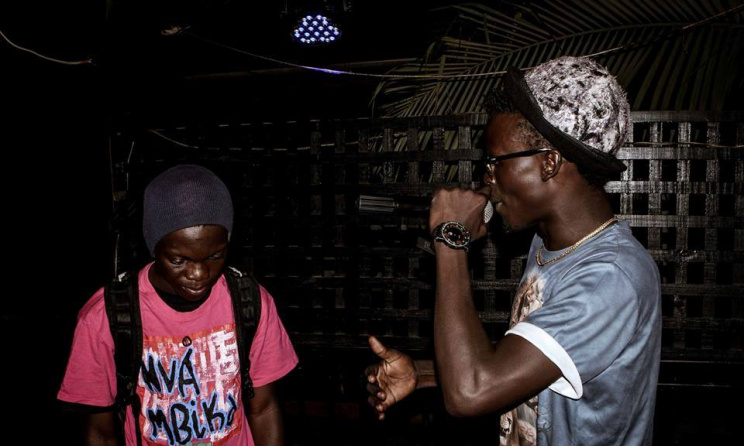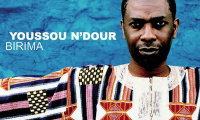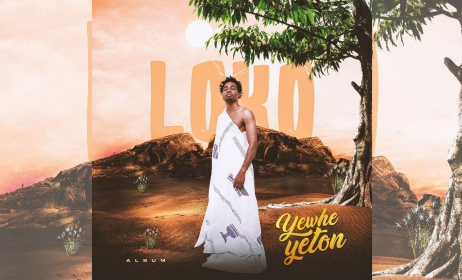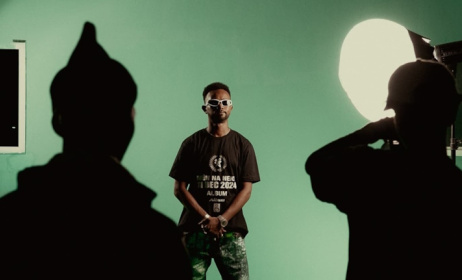Rap battles sparks hip-hop renaissance in Uganda
By Moses Abeka
Hip-hop as a mainstream genre is one of the newest to be widely practiced in Uganda. Two music groups, Klear Kut and Bataka Squad, were the first musical acts to popularize this kind of music back in the late 1990s. Mainstream acceptance for the music genre was almost non-existent back then.
 Oki Foever and MC Gold during a rap battle. Photo: Uganda Rap League Facebook
Oki Foever and MC Gold during a rap battle. Photo: Uganda Rap League Facebook Artists during a battle session. Photo: Uganda Rap League Facebook
Artists during a battle session. Photo: Uganda Rap League Facebook
Since then, a number of the members of the mentioned groups persisted with the genre, especially Navio (who was a member of Klear Kut) and Babaluku. Others like Tekya Abrahams (aka Abramz) and Sylvester also kept creating rap music, focusing on socially conscious themes and topics. More acts continued popularizing the genre by joining the scene. Rocky Giant was among the first rappers to be embraced in the mainstream.
Around 2008, when GNL Zamba broke out, hip-hop gained alot of recognition. GNL made hip-hop more acceptable and accessible and many Lugaflow (as hip-hop is referred to in Uganda) rappers began to emerge. Since then there has been a flurry of activity on the scene, with a good number of rappers enjoying relative success in the music industry and on the radio circuit.For fans, the genre is made more attractive by the performer’s energy, creativity, attitude and authenticity.
Unlike in West and South African countries, where hip-hop is a vibrant industry, East Africa has not faired so well. Uganda particularly is yet to register significant success. The country’s hip hop scene is mired by a myriad of inadequacies, ranging from public acceptance to cliquishness. For many audiences, the genre is largely viewed as "foreign" - except for urban dwellers and high school students. As such, rappers and rap enthusiasts continue to chart a better course for the genre through stakeholder meetings. But in these endless meetings - like conferences of a corrupt administration - the emotional and powerful proposals never see the light of day.
Even though the genre has been around for more than a decade, Ugandan hip-hop still struggles to get airplay beyond the dusty suburbs of Kampala. Rappers rarely stage shows, while fans on the other hand still expect free albums. But for Ugandan hip-hop artists there are more challenges. For them the greatest hurdle is to produce sounds that the local population is familiar with. All is not lost: despite the fair share of frustrations, the industry has registered some success. In December 2015, Navio released a new album, Power. Nelly Sade Saint too has joined the ranks of top names after two successful albums. More mixtapes are being released but due to minimal marketing most rappers are struggling to live off their art.
Uganda Rap League
Uganda Rap League (URL), a community initiative, is hoping to change the mixed fortunes in Ugandan hip-hop through rap battles. MCing or rapping is one of the four key stylistic elements of hip-hop music. For starters, a rap battle is a contest where rappers compete or battle each other using improvised ‘spur-of-the-moment’ lyrics. Each rapper’s goal is to outdo the opponent through cleverly crafted lyrics and convince the audience that he (or she) is the best. Unlike other rap battles, the Ugandan Rap League has the audience as the judges. The contest is held in various round, leading to an elimination stage, much like a soccer championship, with the overall winners crowned while other impressive performers are awarded as well.
The Uganda Rap League is a grassroots organization created by Okiror Emmanuel (aka Oki Foever Mc) and partnered with Neal Kelley, founder of Raven Radio. The objective is to engage the Ugandan youth through the use of hip-hop as a tool to build capacity in the creative arts and develop real-life business skills. In 2015 the organization hosted a series of events, with the final event held in December. URL is set to step up its activities and organize more battles in 2016.
Rapper Oki Foever hopes that the Ugandan Rap League will inspire creativity and bring hip-hop closer to the community. "We are organizing these events to bridge the gap. We hope to inspire confidence among the youth and equip them with basic life skills while promoting hip-hop”, he says. The monthly event features Ugandan rappers and it's hoped that this will be just what Ugandan hip-hop music needs to realize its full potential.
More information about the Uganda Rap League's hip-hop activities can be found at the organization’s Facebook page.



























Commentaires
s'identifier or register to post comments